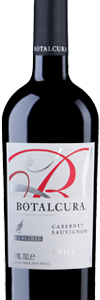Nativa began in 1995 as a part of Viña Carmen and four years later, in 1999, Nativa produced the first Chilean wine made with certified organic grapes. Today the Nativa wines are made from grapes grown in both sustainably managed and certified organic vineyard. The Terra range adheres to the Sustainability Code by Wines of Chile. This code monitors sustainable practices in the vineyard, winery and offices as well aiming to improve social conditions of their employees through various community projects.
Vineyards
The grapes for the Terra Range are sourced from small (less than 5 hectares) long term growers, farming sustainably. The Terra range has moved away from being certified organic due to the difficulties in sourcing organically grown grapes (especially the Sauvignon Blanc, compounded by severe frosts in 2013 and a small 2014 harvest). Despite this, Nativa are still making the Terra range following organic practices. In fact, none of the wines have had any vineyard treatment- not even water – because 90% of them are from dry farming cultivars. The Cabernet Sauvignon grapes are handpicked from vineyards located in Colchagua.
Vintage Information
The 2014 vintage saw a difficult start due to a widespread frost in mid-September, which reduced production. However, the resulting low yielding vines produced more concentrated grapes. Most of Chile experienced good climatic conditions for a long and dry ripening season.
Vinification
The grapes were handpicked, destemmed and cold macerated to increase aromatics at 3-4ºC for 10 days. The must was quickly chilled to help preserve aromas before pressing. The juice was allowed to settle for 36 to 48 hours prior to fermentation at 12ºC – 14ºC. Finally the wine spent two months on its lees to add richness and weight before being filtered and bottled.








